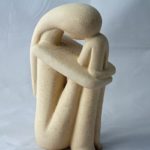Guest post by: Sheila Olson.
While fitness is usually a part of every self-care routine, self-care doesn’t always make the cut in fitness routines. Finding balance and including specific self-care techniques in your daily regimen can ensure the fitness of both mind and body. Relaxation, stress reduction, and sufficient sleep are the three key ingredients in addition to regular exercise. Each works collaboratively with the others to enhance overall well-being.
Relaxation Regimen
Sometimes doing nothing is everything. But only if nothing involves a conscious effort to relax and an awareness of when that state is reached. Knowing when you are relaxed and what that feels like makes it easier to achieve the next time. Once you can identify when you have reached a relaxed state, there are any number of different techniques you can practice.
For example, activities such as knitting or coloring can be very effective low-cost options. Massage, yoga, meditation, and many other more traditional techniques are great relaxation techniques. An aromatherapy diffuser can also help enhance relaxation regardless of where you are or the time of day. Just be sure that the use of a diffuser isn’t disruptive to others because essential oils can be powerful and impact each individual differently. When experiencing times of high stress or sleep deprivation, a relaxation regimen in any form is an important part of getting back on track.
Stress Reduction
Finding better ways to manage and avoid stress, especially the things that cause the most stress throughout the day, is an important part of self-care. Relaxation techniques can help reduce the impact of everyday stress but should not be confused with eliminating stressors. Like relaxation, the ability to recognize the causes of stress is the first step to controlling and eliminating them. Knowing yourself and how you respond to stress triggers can help you sense a stress response before it happens. The ability to sense it allows you to consciously change your response to it, though this takes practice.
Techniques like biofeedback training can teach you how to identify stress responses using audible signals to both identify the response and gauge the effectiveness of stress management techniques to alter it. Meditation, which is also an important relaxation technique, can be incredibly helpful for stress reduction. Creating a special place for meditation in your home can give you a space to escape stressors and, over time, produce automatic relaxation responses.
Quality Sleep
Underestimating the importance of quality sleep is perhaps the most common fitness and self-care mistake. While the basics of getting good sleep take little more than discipline, finding time in a busy schedule to get seven to nine hours of sleep per night can be challenging.
Going to sleep and waking up at the same time each day is paramount to establishing a good routine. If distractions are keeping you from bed, try some techniques to make bedtime more appealing. Invest in high-quality pillows and sheets or even a new mattress if comfort is a problem. Consider getting a noise machine or lowering the temperature in the bedroom to help induce sleep. Adding dark curtains and eliminating light sources like TVs, clocks, and other electronics can also reduce sleep disruptions. Medical conditions can impact sleep cycles, but for most people, self-sabotage is the more likely cause of insufficient sleep. If none of these techniques improve sleep quality, then it might be time to see a doctor.
Relaxation, quality sleep, and stress reduction all go hand in hand. A self-care regimen that focuses on one generally benefits the others and enhances the benefits of a fitness routine as well. Balancing all these elements effectively will result in optimal wellness.
If you want to discover the benefits of natural health for yourself, be sure to Book Your Appointment. You can also contact us at Heavenly Embrace Wellness.
Infrared Sauna Increases Muscle Strength and Muscle Growth and Improves Exercise Tolerance and Performance
In a study on the effect of heat on muscle strength, subjects were exposed to about 120 degrees F for one hour/day for 11 days. They did not train during this time. Incredibly, after 11 days of passive heating, strength increased by 17%! In another study, local heat was applied to thigh muscles for 8 hours/day, 34 days/week for 10 weeks. They did not exercise during this time. At the end of 10 weeks, maximum forced knee extension increased by 5.8%. The studies show that heating the muscles increases muscle mass and strength without any exercise training.
Heat therapy has been shown to increase muscle mass and protein content without physical exercise! After just one hour of heat therapy, animals had increased muscle weight and protein content seven days later compared to controls. Heat treatment before exercise has been shown to enhance the effects of exercise on muscle remodeling, increasing the protein content in muscles more than in exercise alone. When that is combined with stretching, it produces the highest levels of muscle protein.
The effects of far infrared therapy on young, healthy athletes have been studied with impressive results. Athletes treated with far infrared sauna had significantly higher oxygen uptake, longer endurance, and a higher anaerobic threshold (the point at which your muscles start “burning”). These effects are partially due to increased blood vessel growth and blood flow to the muscles, as well as increased muscle growth was also seen with sauna therapy
Love and Light,
Liraz
Liraz Bergman-Turner is a Licensed Massage Therapist, Reiki Master & Reflexologist. She is the owner of Heavenly Embrace Wellness, a massage and energy healing practice in Boulder, CO.
Photo Credit: Pixabay
Liraz is a gifted healer. Her massage was both strong and gentle, anticipating what was needed for each muscle. Her office is beautiful and relaxing. She has all the amenities for pampering and the strength for deep tissue. I loved the essential oils throughout. Highly recommend!





